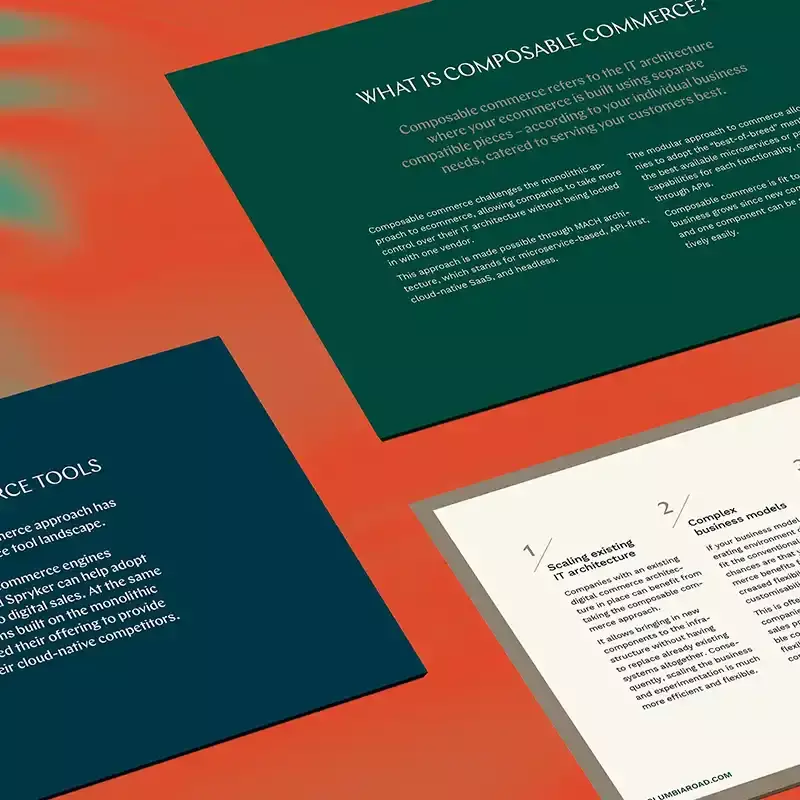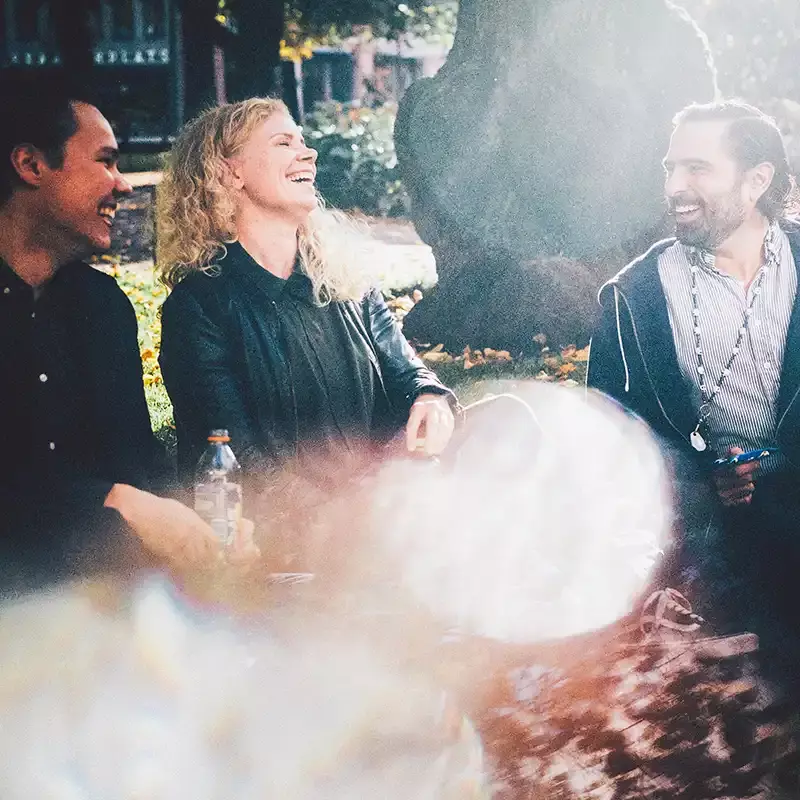The Data Handbook
How to use data to improve your customer journey and get better business outcomes in digital sales. Interviews, use cases, and deep-dives.
Get the book
This blog is part of our brand new blog series: Recruiter's letter. The writer, Eve Haavisto is a tech recruiter at Columbia Road whose shopping cart is always half full.
Not all technical interviews are the same
As a software developer, you may have come across several technical interviews during your career. While they all strive to determine your level of technical expertise, the interview itself may look different in different organisations. Recently, it has become commonplace to use pre-assignments that you will complete before the actual interview. These practical coding tests are meant to demonstrate your ability to use the correct tools and techniques for the case and solve the problem in the given timeframe.
However, not all companies choose to use these types of assignments. At Columbia Road, we are first and foremost advisors to our clients. Thus, one of the key skills for any Roadie developer is to be able to argue for and against technical solutions and suggest appropriate methods for the client. We believe that these skills are best explored through genuine conversations around the topic.
The Columbia Road style
In a typical Columbia Road tech interview, you’ll be asked to talk about a recent project you've worked on or the technologies you feel most comfortable with. This conversation starter leads us to discussions around the width and depth of your technical expertise. Thus, expect no hurdle jumping or coding tests, but be prepared to discuss your technical choices and approaches both in actual and hypothetical scenarios.
Below we have listed some of the most common missteps we see in these interviews to help you prepare for your interview. We recommend viewing this as a tip sheet rather than an absolute truth since each candidate’s situation and focus areas are unique. Happy reading!
1. Forgetting your audience
In any communication, considering your audience is key. This is also true for job interviews. At Columbia Road, you’ll generally meet two people at each stage of the recruitment process. When it comes to technical interviews, these people can be either two software developers or a recruitment specialist together with a developer. While both combinations strive first and foremost to validate your technical skills, they are also evaluating your consultative mindset, business interest and cultural fit. What unites all Roadies is the passion to deliver measurable impact to our client's business and that is what your audience is looking for.
2. Diving straight into the technical details
Whether both of your interviewers are software experts or not, you’ll be doing yourself a disservice if you dive straight into the technical details of a project. Relating to point 1, it’s essential that you are first able to explain the “why” of the project before plunging into the “how”. This is especially relevant in a consulting context, as one of a consultant’s most crucial tasks is to advise the client and be able to argue for and against different technical possibilities.
3. Getting sidetracked
When you love what you do, it’s easy to get sidetracked and talk at length about topics that excite you. While we love long and sinuous discussions, it’s best to keep your focus on the question asked in an interview situation. By no means does this mean that there should be no conversation - quite the opposite - but try to avoid long monologues that go off on a tangent. Keeping the conversation on the subject allows all parties to cover the relevant themes in the allocated time.
4. Using too much or too little detail
Being mindful of the time allocated for an interview also means using the appropriate level of detail in your answers. The interviewing Roadies will assist you by posing follow-up questions when elaboration is needed on an answer, but you can prepare by thinking about the “what?”, "why?” and “how?” of your recent endeavours.
5. Being afraid to say “I don’t know”
Sometimes getting sidetracked or using excessive detail on a specific topic can happen because of nerves. And that’s okay! We are all people and it’s natural for us to feel nervous in unfamiliar situations. A good way to combat the jitters is to tell the interviewers how you feel. Often just voicing your feelings out loud helps and the interviewing Roadies appreciate the authenticity. Similarly, you shouldn’t be afraid to say you don't know the answer to a question. Openness and honesty are integral parts of the Columbia Road culture and are thus also much appreciated in these situations as well. In addition, a skilled interviewer can rephrase questions in a way that might help you realise that you actually do know the answer!
6. Indicating no interest in the company’s domain
Regardless of what job you are applying for, it’s essential that you are interested in the employing company’s area of business. This allows you to find continued fulfilment in your work and helps you connect with your colleagues. At Columbia Road, our passion is to help our clients sell better and we hope that you share this excitement. Whether your specific interest lies in integrations, platforms, payment solutions, data or something entirely else, showing an interest in e-commerce goes a long way.
7. Focusing too much on one technology
While extensive knowledge and experience in a single technology can be a huge asset in some companies, Columbia Road developers are typically skilled in many areas and master a wide stack of different technologies. This is due to the fact that Columbia Road is a technology agnostic consultancy, meaning that we don’t sell any products to our clients but rather find the ones that work best for their use case. Thus, being curious and eager to try new tech is a key element for any Roadie.
8. Having no understanding of what consulting work is
For someone who has never worked with consulting it can be tricky to grasp what this advisory role means for a developer. Naturally, we don’t expect you to know the ins and outs of the trade, but doing some research on the topic will help you prepare questions ahead of the interview. The most important thing to understand is that consulting is a people business. As one of our designers, Juuli Kiiskinen put it, “The best solution starts by listening, analysing and gathering as much information about the project as possible. Only after this is done, is it appropriate to start formulating potential solutions.”. If consulting is new to you, we highly recommend reading the whole blog here.
9. Showing unwillingness to work in cross-competence teams
Working closely with colleagues from other competence areas is part of Columbia Road’s DNA. We believe that delivering the biggest impact to our clients requires excellent communication and collaboration between Roadies. Since many organisations still work in highly specialised, domain-specific teams, the Roadie way can feel foreign to many candidates. To better grasp what it’s like to work as a Columbia Road consultant, take a look at our Culture Code.
10. Not being yourself
Last but certainly not least, let your personality shine through! The Roadies are what makes Columbia Road special and each Roadie brings their unique touch to the community. During the recruitment process, our aim is to get to know you as well as possible and to give you a good understanding of what Roadie life is all about. You’ll meet with several Roadies along the way who will help you explore if Columbia Road could be the right place for you!
We're constantly looking for new talented and nice people to join our crew! Take a peek at our open positions - we can't wait to hear from you 👇
The Data Handbook
How to use data to improve your customer journey and get better business outcomes in digital sales. Interviews, use cases, and deep-dives.
Get the book




